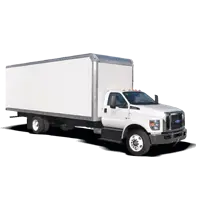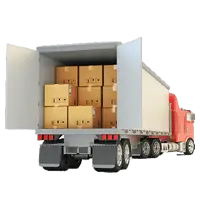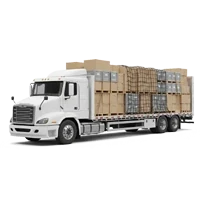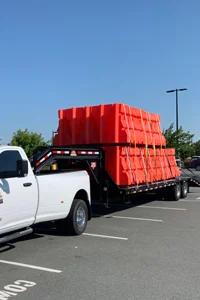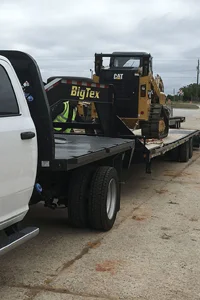Oil Field Trucking
The Backbone of Energy Transport
Oil Field Trucking: The Backbone of Energy Transport
Oil field trucking plays a pivotal role in the energy industry. From transporting crude oil to moving essential equipment and materials to drilling sites, these specialized trucks ensure the smooth operation of the entire energy supply chain. Having spent years in this industry, I've seen firsthand the challenges and triumphs that come with this demanding job.
What is Oil Field Trucking?
Oil field trucking is all about the heavy lifting - literally. These trucks are designed to handle the toughest terrains and harshest conditions, delivering oil, drilling equipment, and other vital supplies to extraction and production sites. I remember one particularly grueling winter when our trucks had to navigate icy, remote paths to keep the operation running. It's tough work, but incredibly rewarding.
The Importance of Oil Field Trucking
Without oil field trucking, the energy industry would come to a standstill. These trucks are the unsung heroes, ensuring that crucial supplies reach their destinations and that waste materials are removed efficiently. They are the lifeline that keeps energy flowing from extraction to refinement. I've often felt a deep sense of pride knowing that our work is essential to keeping homes warm and industries running.
Challenges in Oil Field Trucking
Oil field trucking is not for the faint of heart. It comes with a unique set of challenges, including:
- Rugged Terrain: Drilling sites are often in remote locations with difficult terrains. Our trucks have to be robust and durable to handle these conditions. I've seen tires blow out on rocky paths and engines struggle in extreme cold, but our team always finds a way to push through.
- Safety Concerns: Transporting hazardous materials like crude oil requires strict adherence to safety protocols. We've had rigorous training to prevent spills and accidents, ensuring both our safety and the environment's protection.
- Environmental Impact: The industry is under constant scrutiny to minimize its environmental footprint. This pushes us to adopt more sustainable practices, which is a challenge but also a necessary evolution.
Technological Advances in Oil Field Trucking
Technology has transformed oil field trucking, making it safer and more efficient:
- GPS and Telematics: These systems enhance route planning and provide real-time tracking, improving safety and efficiency. I remember the days before GPS when getting lost was a common occurrence. Now, we have precise routes and can monitor our shipments in real-time.
- Automation: Automated systems help monitor vehicle performance and predict maintenance needs, reducing downtime. This has been a game-changer, allowing us to keep trucks on the road and avoid unexpected breakdowns.
- Eco-Friendly Solutions: Innovations like electric and hybrid trucks are being explored to minimize environmental impact. It's exciting to see the industry moving towards greener solutions, and it makes me hopeful for the future.
Conclusion
Oil field trucking is truly the backbone of the energy sector. It ensures the continuous and efficient transport of oil and essential materials, despite the many challenges. Ongoing technological advancements are enhancing both the efficiency and sustainability of this critical industry. As someone deeply involved in this field, I can attest to the dedication and innovation that drives us forward every day.
Personal Stories from the Field
Working in oil field trucking, I've gathered countless stories that highlight both the challenges and rewards of this profession. One of the most memorable experiences was during a major winter storm. Our team had a critical delivery of drilling equipment to make, and the roads were nearly impassable. With temperatures dropping below freezing and snow piling up, it seemed impossible. But we pushed through, taking it slow and steady, making sure every load was secure. It took longer than expected, but we delivered the equipment safely and on time. The gratitude from the crew at the site made all the effort worthwhile.
Another story that stands out involves a summer heatwave in Texas. The temperatures soared above 100°F, and the heat was relentless. Our trucks were equipped with additional cooling systems to keep the engines from overheating, but the real challenge was for the drivers. We implemented more frequent breaks and ensured everyone stayed hydrated. Despite the harsh conditions, we managed to keep our operations running smoothly, demonstrating the resilience and dedication of our team.
The Team Behind the Trucks
Oil field trucking isn't just about the trucks; it's about the people who keep them running. Our drivers are the heart and soul of the operation. They undergo extensive training to handle the specific demands of oil field logistics, from navigating rough terrains to adhering to stringent safety protocols. I recall a driver, Mike, who exemplified dedication. He once drove through the night to deliver a crucial shipment, ensuring that a drilling project could proceed without delay. His commitment is a testament to the hard work and reliability that defines our team.
Beyond the drivers, our maintenance crew plays a vital role. They work tirelessly to ensure that every vehicle is in top condition. Preventive maintenance is key, and our mechanics are some of the best in the industry. Their expertise keeps the fleet running efficiently and safely, allowing us to meet our commitments consistently.
Impact on Local Communities
Oil field trucking also has a significant impact on local communities. By providing essential transportation services, we support local economies and create jobs. Additionally, we engage in community outreach programs, such as sponsoring local events and participating in environmental cleanup efforts. These initiatives help build strong relationships with the communities we serve.
One of the most rewarding experiences was participating in a local school’s career day. Explaining the ins and outs of oil field trucking to the students and seeing their excitement was incredibly fulfilling. It was a reminder of the importance of our work and its broader implications beyond just the energy sector.
The Future of Oil Field Trucking
Looking ahead, the future of oil field trucking is poised for transformation. Technological advancements are continually improving efficiency and safety. The adoption of electric and hybrid trucks is a promising development, aiming to reduce the environmental impact of our operations. Additionally, autonomous driving technology is on the horizon, which could revolutionize how we approach logistics in the oil industry.
Embracing these changes is crucial for the industry's sustainability. I'm excited about the potential these innovations hold and how they will shape the future of oil field trucking. As someone who has spent years in this field, it's gratifying to see the progress and to be part of an industry that is evolving to meet the challenges of tomorrow.
Career Opportunities in Oil Field Trucking
For those considering a career in oil field trucking, the opportunities are vast. It's a demanding yet rewarding field that offers a variety of roles, from drivers and mechanics to logistics coordinators and safety officers. The skills you develop here are invaluable and can lead to a fulfilling career.
I've mentored many newcomers over the years, helping them navigate the complexities of this industry. One of the most satisfying parts of my job is seeing these individuals grow and succeed. If you're looking for a challenging and dynamic career, oil field trucking might be the perfect fit for you.
FAQs
1. Why is oil field trucking crucial for the energy industry?
Oil field trucking ensures the continuous and efficient transport of crude oil, equipment, and materials necessary for extraction and production. Without these specialized services, the energy supply chain would face significant disruptions.
2. What are the primary challenges faced by oil field truckers?
The main challenges include navigating rugged terrains, adhering to strict safety protocols for transporting hazardous materials, and minimizing environmental impact. Overcoming these challenges requires specialized equipment, rigorous training, and a commitment to safety and sustainability.
3. How does technology enhance oil field trucking operations?
Technology plays a crucial role in improving efficiency and safety. GPS and telematics systems aid in route planning and real-time tracking, while automated systems monitor vehicle performance and predict maintenance needs. Additionally, advancements in eco-friendly solutions like electric and hybrid trucks are reducing the environmental footprint of oil field trucking.
4. What career opportunities are available in oil field trucking?
The field offers a variety of career paths, including drivers, mechanics, logistics coordinators, and safety officers. Each role is essential for the smooth operation of oil field logistics, and the skills gained are valuable for long-term career growth.
5. How does oil field trucking impact local communities?
Oil field trucking supports local economies by creating jobs and providing essential services. Additionally, many companies engage in community outreach programs, contributing to local events and environmental initiatives, fostering strong community relationships.



